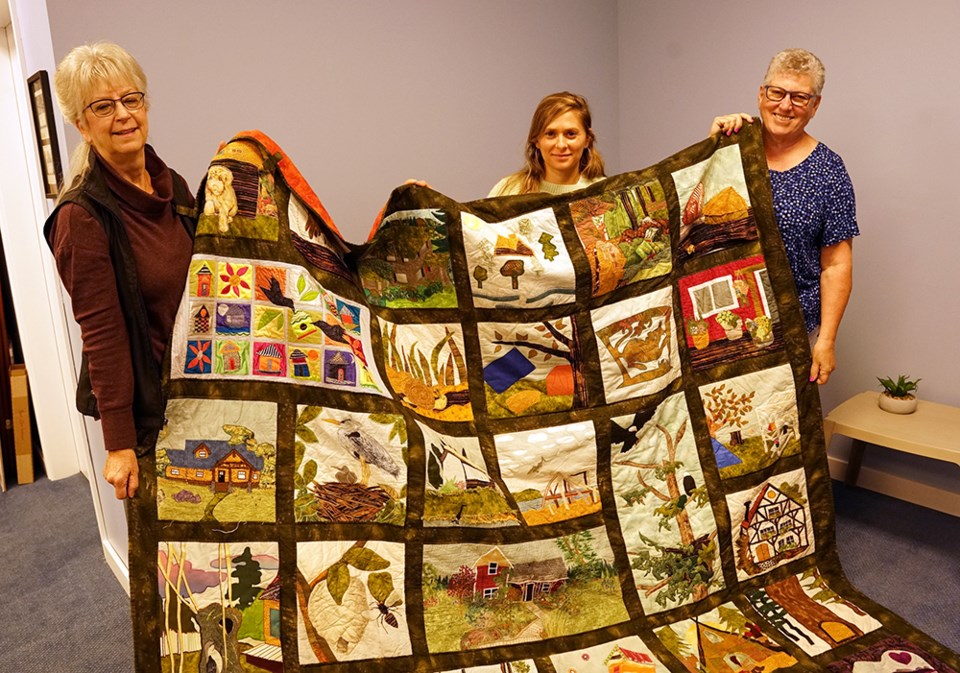Powell River Hospice Society is on the cusp of a major project, which is to develop and build a dedicated hospice facility.
Malerie Meeker, hospice society director, said the board recently hired a resource developer because a big fundraising campaign will be necessitated. She said the society does not receive any operational or capital money from the government and programs exist because of the generosity of the community.
“We’re ready to launch this big campaign, and we had this aha moment, that as much as we had reported regularly to the community, we hadn’t reached out in a really robust way to find out what they want and what they see for themselves and the community,” said Meeker. “We put together a community engagement campaign that we are in the middle of. We have a community survey that’s available online through our website.”
The site’s address is prhospice.org and more than 100 people have responded.
Meeker said the society has also held two focus groups to dig deep into what it is people envision for hospice in the community. The first focus group was made up of individuals who had experienced loss, so it was “pretty heartfelt,” according to Meeker.
A second focus group was with hospice volunteers. Meeker said the hospice families’ grief is ever-present and the dynamic of hospice volunteers is not the same.
“Yes, it’s very emotional for them, too, but the perspective is different,” said Meeker. “What we heard rock-solid in the second focus group was person-centred care.
“It’s going to help us get down to the more nuanced kind of planning and look at inclusive design and how we make all of those different factors available for people.”
Meeker said there is a distinction between hospice care and palliative care.
“A lot of people want to call it the same thing,” said Meeker. “When palliative care and hospice care work together it is really quite a beautiful thing, but they are disparate. Palliative care is the medical focus. Hospice care embraces the emotional, spiritual, psycho-social aspects.
“One of the things that makes me proud of this organization is that work is done by very well-trained volunteers.”
Meeker said the next step is a key stakeholders meeting that will be held later in November. She said the society will be inviting all the organizations that have an interest in hospice care. The hospice society will be looking at sharing what it has learned so far and will be looking for feedback on this information within the context of the various organizations, she added.
“Probably more importantly, we will be asking how they see themselves supporting the hospice initiative, and if so, how?” said Meeker.
“Then, we are going to take all of that information from the surveys, the focus groups and key stakeholders and we will be holding a full-day retreat for the board and staff to make sure we have that community perspective on the steering committee.”
A report from this process will be generated.
“We will have a plan and we’ll go to our partners and say let’s work together and launch the fundraising campaign,” said Meeker.
Construction costs
Cathy Fisher, president of the hospice society, said if the society decides to build a standalone facility, an estimated $5 million will be required for building at the qathet General Hospital property. She said if the hospice is an addition to another building, it can be less money.
“That’s just the construction costs, which would have to be 100 per cent raised in the community,” said Fisher. “There’s no capital funding available from Vancouver Coastal Health (VCH) or the provincial government.
“Once a building is built, VCH operates it. They would take care of the operational costs, which are about $500,000 a year.”
Fisher said the initial design would be for four beds, but the design would be to make it expandable.
“I really believe in the power of this community,” added Fisher. “Time after time, it doesn’t matter what the project is, people are behind it, it’s important to them and it happens. It might take a little longer with the economy the way it is, but I believe this is something people can get behind.”
Fisher said the society is hopeful a campaign can be launched early in the new year.
She said having a hospice facility would make a huge difference, providing a base in the community for people who choose to spend the last part of their life in a homey environment, with the kind of care and support they want.
“It’s just a whole different environment than dying in a hospital,” said Fisher. “It’s a place where families can gather and not worry about having to be quiet. They can play the kind of music they want and there’s an outdoor space where they can go. It puts the person in hospice in the driver’s seat.”
The hospice society has 41 volunteers, including board members.
“We meet people where they are and will continue to do that,” said Fisher. “There isn’t just a requirement that you have to be in the building to get our services. We work with people in their homes, in long-term care, in hospital or wherever they are.”




